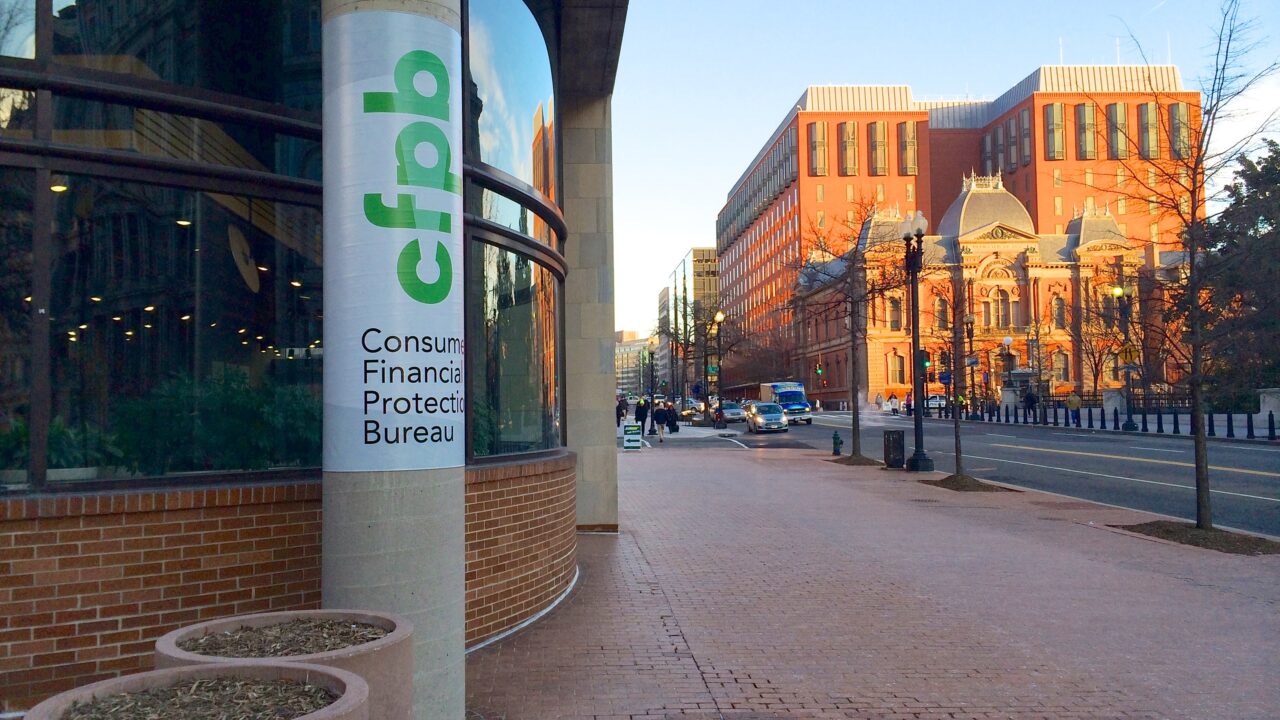 cfpb 36794 by Ted Eytan is licensed under CC BY-SA 2.0
cfpb 36794 by Ted Eytan is licensed under CC BY-SA 2.0
On May 3, 2023, Americans for Tax Reform, the Competitive Enterprise Institute, 60 Plus Association, and Todd Zywicki submitted comments to the Consumer Financial Protection Bureau (CFPB) asking that it withdraw its proposed rule on credit card late fees (Credit Card Penalty Fees (Regulation Z)). The rule proposes to slash credit card late fees to $8 or less with no adjustment for inflation.
First, the comments note that the CFPB is exceeding its statutory authority to impose price controls that contravene the intent of the underlying legislation. Laws governing the regulation of credit card fees have long required that the CFPB consult prudential regulators to protect the safety of the financial system and to permit credit card issuers to decide what is reasonable and proportional within bounds of reasonableness that were up to $20-30, not $8. Further:
The governing statutes require a measured, data-driven process in writing rules governing credit card fees. The legislative language states that in issuing rules, the CFPB “shall consider the cost incurred by the creditor” from cardholders violating the payment deadline and the “deterrence” effect such a fee would have in discouraging future late payments.
There is much evidence that the CFPB did nothing of the sort.
Next, the comments show how the logic offered by the CFPB to justify the $8 limit is tortured and clearly unreasonable. The proposed rule cutting the maximum fee by 70% was shocking to financial observers, not to mention the ban on any fee increase on missing payments or the lack of an adjustment for inflation. In the words of the comments:
The CFPB’s reasons for this drastic change are difficult to decipher. This proposal puts the rule on a collision course with the CARD Act’s requirement that late fees be “reasonable” in their calculation, a mandate that applies to both the CFPB and card issuers in deciding the fee amounts that are appropriate. Also, the CFPB’s ignoring both of relevant data and skirting of required procedures in promulgating this rule could be deemed “arbitrary and capricious” under a court’s review. In the rule, the CFPB admits that many consumers will be paying more and that it lacks data on important potential economic effects. The motives underlying this rule appear to be simple anger at what the CFPB perceived to be as ill-gotten gains by credit card issues and a misguided sense of paternalism on behalf of late payers it labels as “naïve,” contrary to survey evidence of consumers’ knowledge of deadlines and penalties.
The comments also note that another rationale could be that this is just another front in the Biden administration’s war on “junk fees.”
The comments go on to explain how the proposed rule violates the Administrative Procedure Act because the CFPB ignores studies showing this rule would almost certainly increase costs and reduce availability of credit for many consumers – including lower-income consumers and seniors on fixed incomes.
Next, the comments show that the exclusion of costs conflicts with the law and potentially the U.S. Constitution. Besides violating the Credit Card Accountability Responsibility and Disclosure Act (CARD Act) by deliberately not considering all costs incurred by the creditor, it also violates the Constitution in this way:
In addition to potentially being deemed arbitrary and capricious by courts, the proposed rule may come into conflict both the Due Process and Takings Clauses of the 5th Amendment, as it may be found to deprive banks and credit unions that issue cards of their property rights to a return on capital invested. The Supreme Court case Duquesne Light v. Barasch, affirmed 8-1 that a government-set “rate is too low if it is so unjust as to destroy the value of the property for all the purposes for which it was acquired.”
The comments conclude by asking the CFPB to withdraw the rule. The American people are suffering enough under high inflation, and they should not also be punished by the CFPB for being responsible with their credit card payments to subsidize those who were not.
Because this rule conflicts with most Americans’ values of freedom and responsibility – as well as potentially the underlying statutes and the U.S. Constitution – the CFPB should live up to its name and protect consumers by withdrawing this rule.
Click here to read the full comments.

